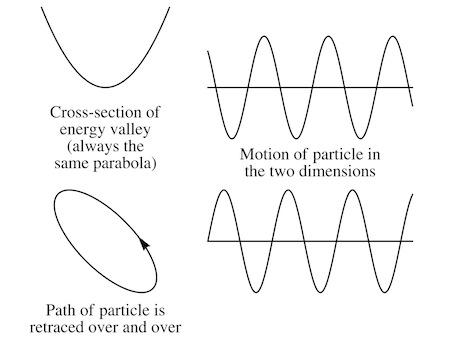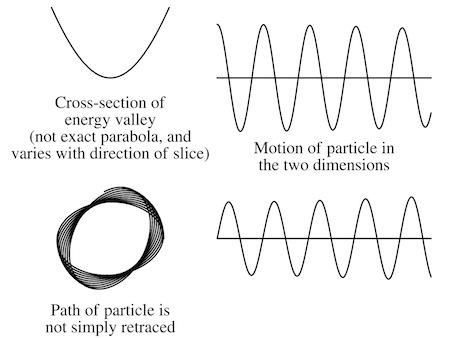“If we cut the older women’s doses in strict proportion to everyone else’s,” Sefora explained, “I can’t promise that they won’t face a greater increase in risk.”
Yalda said, “You mean a drop of three parts in ten could be enough…?” She pictured Tullia, lying motionless on the floor of her apartment. No one had the numbers, but they all had their fears.
“I could always leave the dosage for the senior women unchanged,” Sefora said. “If we made an exception for everyone older than a dozen years and ten, that’s less than a sixth of the female population. Spread out between all the younger cohorts, the difference would scarcely be noticeable.” She was not quite as old as Yalda, but she would fall into the same category.
Yalda considered the suggestion. Wouldn’t it be fairer, to protect the most vulnerable members of the crew? It would certainly be prudent: they couldn’t risk having the most experienced women taken without warning, leaving the
She said, “I think you should do that.”
“If a particle is moving in an energy valley that takes the form of a parabola,” Yalda told the class, “it will repeat the same harmonic motion over and over, with a frequency that depends only on a single number describing the parabola’s shape.”
“Like a weight oscillating on the end of a spring?” Prospera suggested.
“Or a pendulum under gravity?” Fatima added.
“In idealized versions, yes,” Yalda agreed, “though in reality both those systems experience friction, and both have small deviations from a parabolic potential.
“Still, in the absence of friction—or light generation—the particle’s energy will be conserved, and if it’s moving back and forth in just one dimension, even if the valley isn’t shaped like a parabola the particle will always return to its starting point. So its motion will be perfectly cyclical, and it won’t have any harmonics with a lower frequency than that cycle.
“But in two or more dimensions, things start to get more complicated. Even when energy is conserved, a particle need not retrace its path exactly. If the shape of the valley is a perfect paraboloid it will do so—” Yalda sketched an example:

“But that’s not the case for the energy valley in a solid, due to Nereo’s potential. There, the cross-section isn’t exactly parabolic, and it will be shaped a bit differently when you slice it in different directions.”

“So instead of moving back and forth with a single, pure frequency, a luxagen in this energy valley will follow a path that we need to describe with a multitude of different frequencies, all present in different amounts.”
“Like describing the strengths of all the colors in a flame?” Ausilia asked.
“Very much like that,” Yalda said. “What we’re going to be doing, eventually, is trying to predict both the colors of solids in ambient light and the spectrum of the light that we’d expect them to emit. And then the question will be:
After the lesson, half the class moved to the food hall, unwilling to end the discussion. Yalda watched the young women among them swallowing their two tablets of holin with their loaves; each cube was smaller on its side than the old ones by just one part in six, which made the rather greater reduction in its volume almost invisible. But she’d taken her own dozen full-strength cubes in the privacy of her apartment, ashamed of the discrepancy even though it was unlikely that anyone would have noticed it.
Yalda listened to the students’ excited chatter and answered their questions with care. Who else could have taught them harmonic analysis of Nereo’s potential, if not her? Who else could have set them on the path to a future where everything the
Isidora. Sabino. Severa. Perhaps a dozen people in all. She was not indispensable.
Fatima lingered after the others in the group had gone. “Have you thought any more about Nino?” she asked Yalda.
“You know I’d be happy to free him,” Yalda replied. “But to do that, I need to be in a position of strength. I’m sure Nino understands that.”
Fatima was unmoved. “You rescued the crops and swatted away the orthogonal dust with the same hand! Everyone knows that they owe their lives to you. How much stronger do you think you’ll ever be?”
“This goldenrod problem—” Yalda protested.
“That’s hardly your fault.”
“Whether it is or it isn’t, people won’t be happy until it’s resolved.” Suddenly self-conscious, Yalda looked around the hall with her rear gaze, but no one was paying them any attention.
Fatima said, “There’ll always be something. If you just saw Nino, if you spoke with him—”
“Anyone else would have gotten rid of him by now,” Yalda declared irritably.
Fatima regarded her with disbelief, then lapsed into a reproachful silence.
Yalda said, “I didn’t mean that. I’m sorry. When things have improved, I’ll look at his situation again.”
“You were in prison once, weren’t you?” Fatima replied. It was a rhetorical question; she knew the answer. “Waiting for someone to set you free?”
“I won’t abandon him,” Yalda said. “I promise you that. Just let me find the right time.”
“Ten of the goldenrod cuttings are infected with blight,” Lavinio announced. “The other two appear to be healthy. But those two cuttings are all we have now; the plants in the four main gardens are lost.”
Yalda absorbed the news, and tried to think through the consequences calmly. They would not be able to harvest any petals from the cuttings until they’d grown larger, or they’d risk killing the plants. It could be as long as half a year before any more holin was being produced—and after that, it could take another year or two for the rate of supply to return to normal.
“What if you split each cutting—after a few stints—and grew the halves separately?” she suggested.
“That would just delay the time until they were strong enough to survive harvesting,” Lavinio explained. “The most important thing is keeping those two plants strong and uninfected.”
“I understand.”
“We’re lucky we haven’t lost the goldenrods completely,” Lavinio said bluntly. “If we’re not careful, it might yet end that way.”
When he’d left, Yalda clung to the ropes beside her desk, fighting a growing sense of helplessness. Word of how serious the problem had become would not take long to spread; if she failed to deal with it swiftly there’d be chaos.
Rationing the stored holin more severely wouldn’t help; there was no point eking it out so slowly that it began to lose its potency. The only way she could survive the wait until production started again was to commandeer enough of what remained to increase her dose as time went on, to compensate for the drug’s deterioration.
But then even when the holin was fresh again, there would not be enough to go around.
She could ask Sefora to draw up a plan to save the oldest women, leaving the others to take their chances. No one on the
Yalda struggled to clear her mind. How was she meant to weigh up the choices and reach the right decision? Eusebio had given her Frido to share the burdens of leadership, but she’d destroyed any chance of trust between them, any hope of getting honest advice from him.
She dragged herself along the ropes to the front of the office and pulled the doors closed. She let her body relax completely, then she felt herself begin to shiver and hum.

